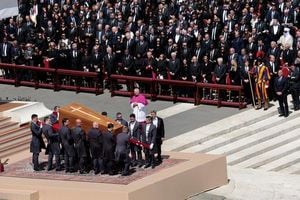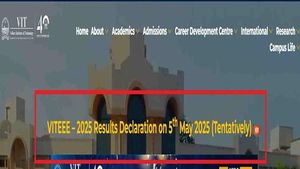Iranian rap star Amir Tataloo faces the death penalty after the Iranian supreme court overturned his previous five-year prison sentence for blasphemy. The ruling, reported by the reform-oriented newspaper Etemad, highlights the country's stringent laws concerning freedom of expression and artistic dissent.
Once celebrated by conservatives for his ability to connect with the youth through music, Tataloo has recently become one of the most controversial figures in Iranian music. The 37-year-old, known for blending rap with pop and R&B, was initially sentenced to five years for allegedly insulting the Prophet Muhammad—a charge most gravely taken under Iran's laws. The decision to escalate his sentence to death came after the prosecution successfully appealed against the lighter punishment.
According to Etemad, the court stated, "The prosecution's appeal was upheld, and the original five-year sentence was converted to death due to insulting the Prophet Muhammad." This alarming escalation raises concerns about the treatment of artists under Iranian law—where blasphemy accusations can carry severe ramifications.
The initial five-year sentence resulted from various accusations beyond blasphemy, including claims of Tataloo encouraging young people toward prostitution and spreading propaganda against the Islamic Republic. Despite previously enjoying support from conservative elements who viewed him as a bridge to liberal youth, Tataloo has found himself increasingly isolated.
Tataloo's artistic career has not been without tumult. After struggling to obtain permits to make music within Iran, he relocated to Istanbul, Turkey, in 2018. His time there was marred by his eventual arrest and extradition back to Iran, where he has remained incarcerated since December 2023.
His extradition and subsequent sentencing have sparked debates about the Iranian authorities' use of draconian measures to silence dissent and the chilling effect such legal actions have on creative expression.
The musician has been involved politically, even releasing songs supportive of the Iranian nuclear program during discussions about the international agreement back in 2015. These earlier actions, combined with his artistic influence, have made him both significant and perilous for the Iranian regime.
Iran stands as one of the world's foremost executors of the death penalty, with the practice drawing international condemnation. According to United Nations reports, there were at least 901 executions recorded last year, highlighting the country’s aggressive approach to law and order, particularly against those perceived to challenge the state.
Despite facing severe legal issues, Tataloo’s fans express concern and outrage over the harsh sentences faced by artists and commentators within Iran. Many have taken to social media to voice their displeasure with the ruling, emphasizing the need for reform and protection for freedom of expression.
Human rights advocates warn of the dangers artists face under Iranian law, especially after the clampdown on dissent following protests against the regime. Calls for international attention to Tataloo’s plight are growing, as there is fear among advocates about the broader implication for freedom of speech and artistic expression.
Under the current regime, blasphemy and related charges are often used as tools of suppression, especially following widespread protests and social unrest since 2022, underscoring fears of increasing repression.
While Tataloo's sentence is not yet final and there remains the possibility of appeal, many worry this case will set the tone for how artists and dissenters will be treated in the future. This sentencing marks another stark reminder of the intersection between art, politics, and justice within Iran, leaving many to wonder what consequences will follow for those who dare to speak their minds.
Only time will reveal the fate of Amir Tataloo, but the broader impact of this case will likely resonate far beyond Iran's borders, bringing attention to the fight for freedom of expression and the rights of artists everywhere.



